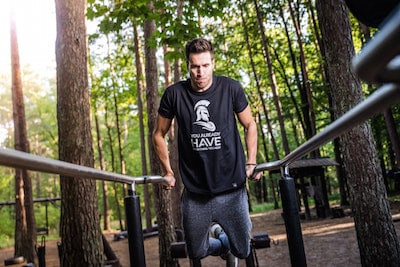
4 hacks for a successful warm up
Dr Brenden Brown, sports podiatrist from Sydney-based A Step Ahead Foot + Ankle Care, says, “Cold muscle is less pliable which means it has to work harder to accommodate a given load and will be more resistant to sudden stretch. Less pliable muscle tissue is also more susceptible to overuse injuries so never underestimate the importance of warming up (correctly!).”
He provides 4 steps to a successful warm up

4 hacks for a successful warm up
#1 Set aside adequate time
Warming up prepares the body for sport by improving blood flow to the different areas, increasing the muscle temperature and making muscles more pliable. The result – less likelihood of injury!
“The warm-up routine needn’t take half an hour, but it should take a good 10-15 minutes,” says Dr Brenden.
#2 WALK, before you run!
All too often players arrive at their sports training session and the coach shouts, “Right, go for a run”. This is way too much sudden change for the muscles.
No matter what sport or activity, players can begin their warm-up by walking.
Dr Brenden advocates the ‘Two footy fields or eight netball courts’ approach to warming up…
- Start slowly walking around the outside of 2 footy fields, end-to-end or side-to-side. For court sports, this equates to approximately 8 laps of the court!
- As you walk further SLOWLY pick up the pace. “NEVER get to a run!”
- You will do 2 complete laps of the 2 fields or 8 laps of the courts.
- NOW you are ready to look at further warm up exercises and maybe that coach’s run!
#3 Perform activity-specific warm ups and training
Let’s take netball as an example, there’s little point in netballers shooting hoops and running straight up and down the court in their warm-up and training sessions. It’s far better to do side-to-side jumps, high jumps and lands, as well as cutting movements. This is much more specific to what they’ll likely to be doing on the court and will help ensure the appropriate muscles are warmed up.
Same goes for footy, rugby or any other sport for that matter; make sure the warm up exercises you perform are relevant to what you’ll be doing on the field or pitch.
#4 Should you really stretch before sport?
This is an important question, particularly as when you stretch out a muscle and hold it there (static stretching) you can push the tissue past where it needs to go, which could do more harm than good!
According to the experts, stretching is NOT PROVEN to help prevent injury, curb muscle soreness after exercise or improve your performance.
In his paper ‘Does stretching improve performance? A systematic and critical review of the literature’1 sports medicine physician Ian Shrier writes, “An acute bout of stretching does not improve force or jump height, and the results for running speed are contradictory. Regular stretching improves force, jump height, and speed, although there is no evidence that it improves running economy.”
Another article2 states: “Static stretching before exercise can weaken performance, such as sprint speed, in studies. The most likely reason is that holding the stretch tires out your muscles.”
It goes on to say, “you should warm up by doing dynamic stretches, which are like your workout but at a lower intensity.”
Dr Brenden explains, “Dynamic stretches differ from the norm in that they stretch the body fluidly through an entire range of motions. Instead of holding the muscle in a stationary stretched-out position, you move gradually through the movement. This also allows you to make the stretching movement more specific to the sport you’ll be playing.”
Related:
4 hacks for staying injury free this winter sports season
Warming up for sport—why bother?
Sources:
-
https://www.ncbi.nlm.nih.gov/pubmed/15377965
-
https://www.webmd.com/fitness-exercise/features/how-to-stretch#1







 Dr Brenden’s White paper report on the “6 Reasons You Won’t Beat Heal Pain” outlines what’s stopping you from beating this and tips on how to stop it in its tracks!
Dr Brenden’s White paper report on the “6 Reasons You Won’t Beat Heal Pain” outlines what’s stopping you from beating this and tips on how to stop it in its tracks!